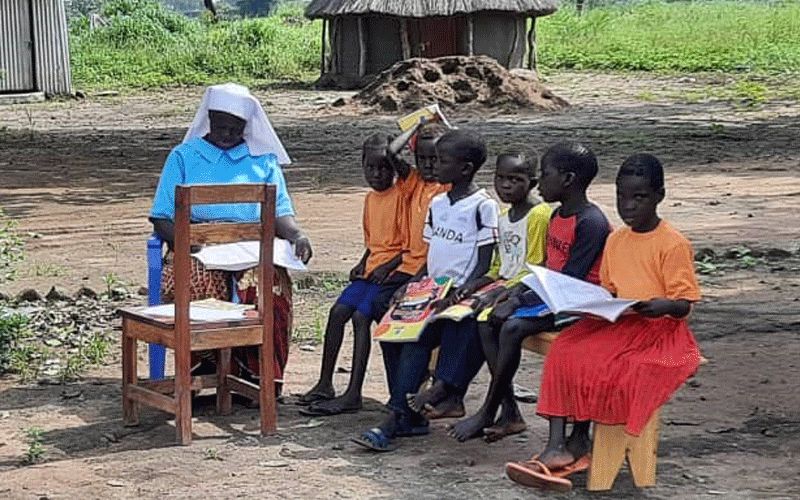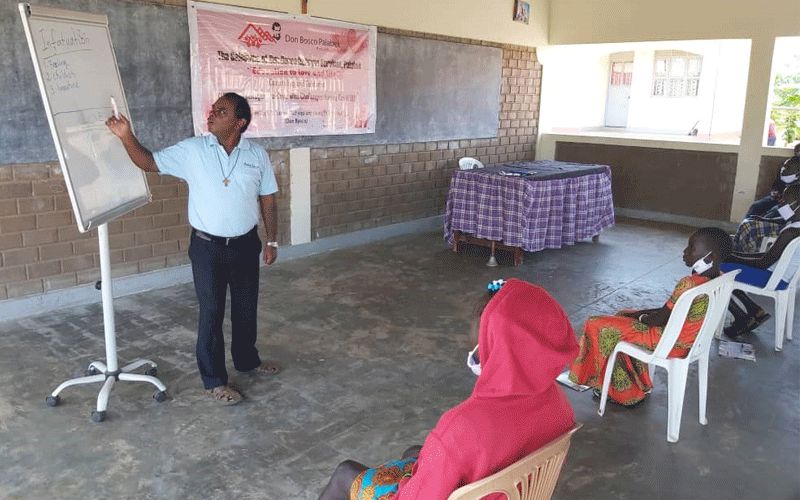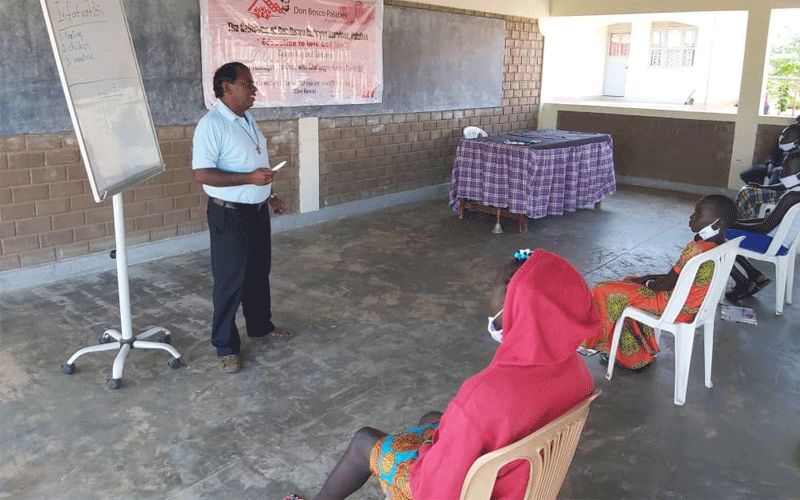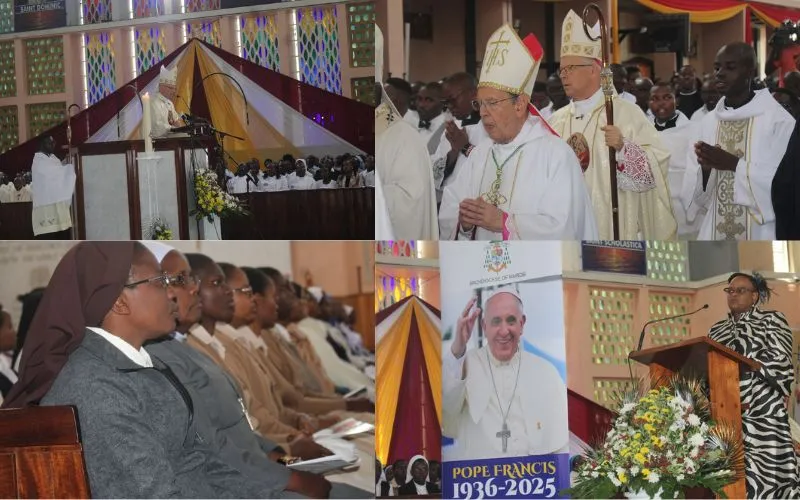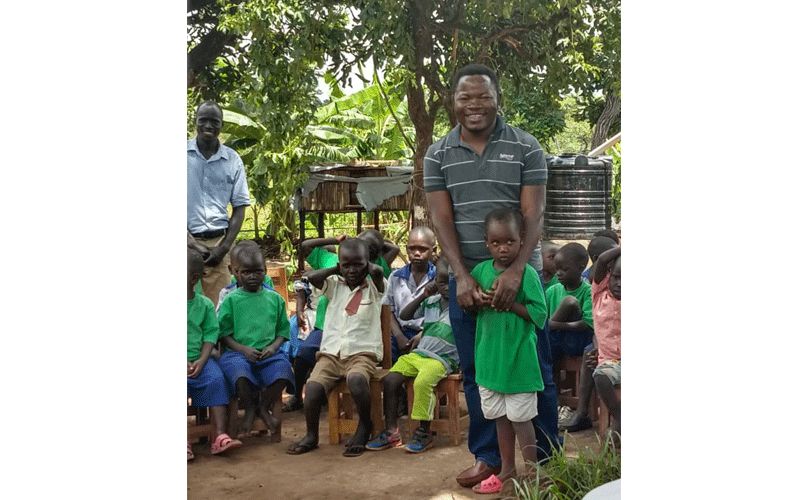The SDB member who has ministered in East Africa for three decades makes reference to the Vatican department of education document saying that although digital platforms have allowed for education to continue, “they also have brought to light a marked disparity in educational and technological opportunities.”
The document also notes that several millions of children will not be able to access education in the coming years, increasing the already existing educational gap.
In Uganda where Fr. Arasu has been working among refugees for years, stakeholders are still discussing and preparing to open educational institutions while many schools and institutions of higher learning around the world have already begun a new academic year, relying on remote learning.
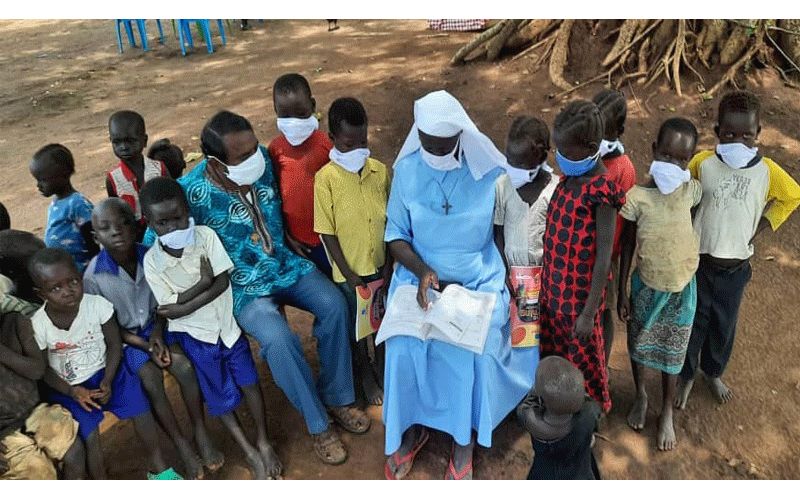
“The children from the poor and lower income families do not have means to facilitate their children's digital learning,” he says, and explains, “For instance, in Uganda there are millions of families without electricity and facilities for telecommunication. Teachers too are not trained to handle this type of education. This will surely widen the gap between the richer/urban and the poor/rural that the country already has.”
(Story continues below)
Besides the educational disparity, Fr. Arasu expresses concern about the loss of in-person learning and interaction with the students and teachers, which he considers, in the words of the Vatican document, as “indispensable for the formation of the person and for a critical understanding of reality.”
“While we adapt to remote learning through digital platforms and keeping physical distancing, we should keep in mind the real objectives and values of education, that is, bringing people together and learning to interact and building a human family,” he says.
The SDB Cleric notes that in classrooms, lecture halls and laboratories, learners grow together and build a sense of identity in relationships.

He says that at all ages of life, especially in childhood, adolescence and early adulthood, the process of psycho-pedagogical growth cannot take place without an encounter with others, and that the presence of the other provides the necessary conditions for creativity and inclusion to flourish.
“Relationships which are vital in education cannot find sufficient home in the interaction mediated by a screen or in the impersonal connections of the digital network,” the Cleric asserts.
He notes that the Vatican “Circular Letter to Schools, Universities and Educational Institutions” brings out clearly the mission of the Catholic educational institutions especially during this time of COVID-19 lockdown.
“The Vatican instructs that while distance learning to control the spread of the epidemic is widening, the current educational gap within society should be removed,” Fr. Arasu says, adding that due to a lack of economic support from the state, Catholic-run schools risk closure or radical downsizing.

The Vatican document insists that education and relationship go hand in hand. It affirms that the process of psycho-pedagogical growth cannot take place without personal encounter with others.
While appreciating the teachers for their selfless service, the Vatican calls for a robust continuing-formation programs for teachers that can meet the needs of our time without losing the synthesis of faith, culture, and life.
“(The) purpose of education is to put each other at the service of others, promoting common good and overcoming divisions of all kinds,” Fr. Arasu says.
He adds, “More than ever before, this period of epidemic we need a strong commitment to form a community of networks which will form an educational alliance whose team effort aims at renewing the passion for a more open and inclusive education.”
Agnes Aineah is a Kenyan journalist with a background in digital and newspaper reporting. She holds a Master of Arts in Digital Journalism from the Aga Khan University, Graduate School of Media and Communications and a Bachelor's Degree in Linguistics, Media and Communications from Kenya's Moi University. Agnes currently serves as a journalist for ACI Africa.
